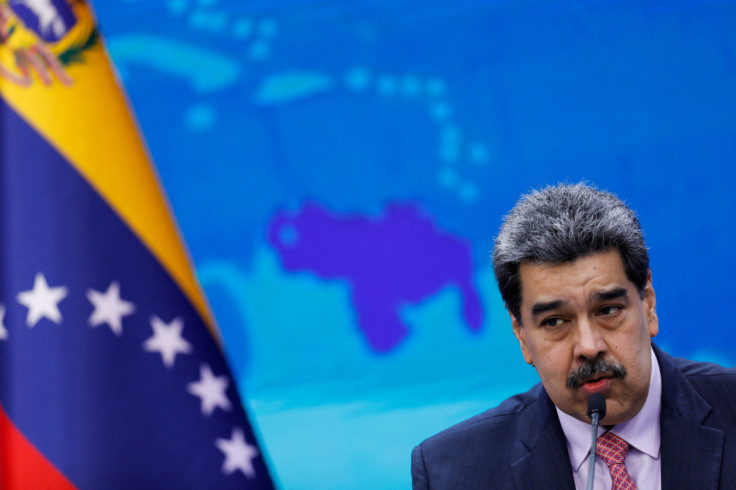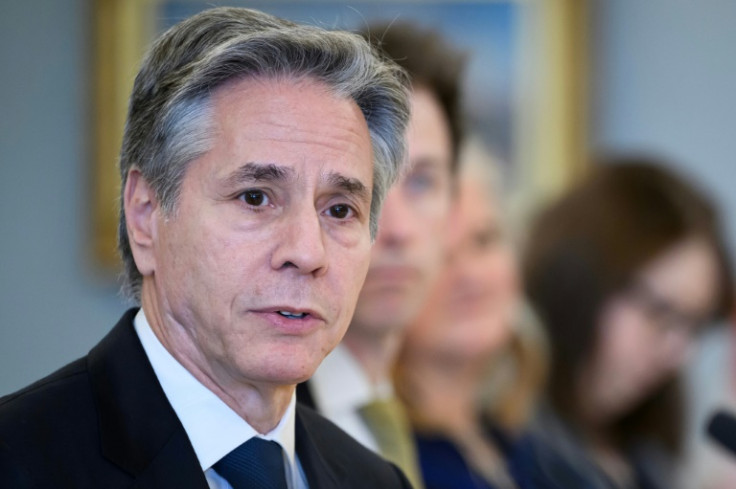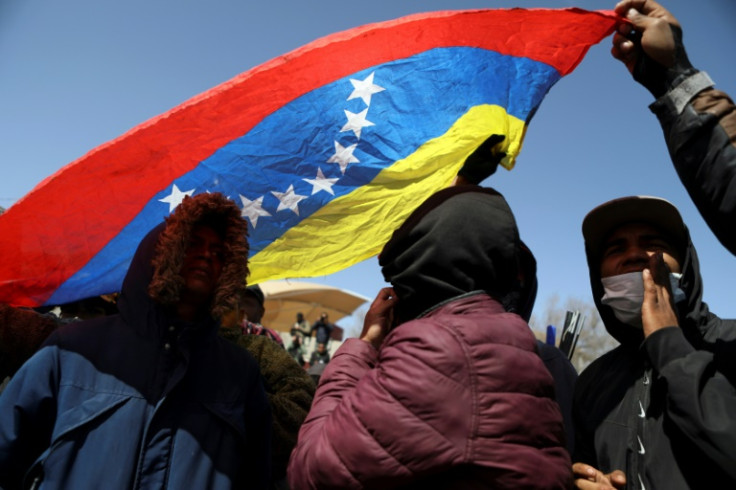
The U.S. State Department released its annual Country Reports on Human Rights Practices, which analyze the situation in over 200 countries, including Venezuela, aiming to assess progress in individual, political, civil, and labor rights.
This edition outlines Russia's invasion of Ukraine, the civil war in Sudan and the Israel-Hamas war as just some of the major global human rights concerns, while it described progress made by Kenya, Japan, Estonia and Slovenia in advancing LGBTQI+ rights.
"We once again see human rights and the rule of law under stress in more ways and in more places across the globe. Governments continue to lock up citizens who challenge those in power and call for a better future, from Belarus to Venezuela," Secretary of State Antony Blinken outlined in a press conference for the release of these reports on Monday.
The report, which is based on reporting from government agencies, nongovernmental organizations, and media, says that, "There were no significant changes in the human rights situation in Venezuela during the year."

Among the most pressing human rights problems that persist in the country the report includes extrajudicial killings, enforced disappearance, torture, arbitrary detention, "serious problems with the independence of the judiciary," use of children by illegal armed groups; serious restrictions on freedom of expression and media freedom, and censorship.
The document is divided into seven sections, each delving into the human rights issues plaguing the country under President Nicolás Maduro's leadership.
Just last week, President Joe Biden's administration re-imposed crushing oil sanctions on Venezuela, aiming to curb Maduro's attempts to consolidate power. This move comes just six months after the US eased restrictions, initially aiming to bolster hopes for a democratic transition.
1. Human rights in Venezuela: Respect for the integrity
The first section, oriented to the "Respect for the Integrity of the Person," highlights that "There were numerous reports that Maduro agents committed arbitrary or unlawful killings, including extrajudicial killings."
"Although Maduro representatives did not release statistics on extrajudicial killings, nongovernmental organizations (NGOs) reported that national, state, and municipal police entities, as well as the armed forces and colectivos (Maduro-aligned armed neighborhood gangs), carried out hundreds of killings during the year."
The document includes a detailed compilation of deaths, disappearances, cases of torture, arbitrary detentions, denial of fair public trials, and transnational repression reported by NGOs, civil organizations, and international organizations.

2. Human rights in Venezuela: Civil Liberties
In Section 2, focused on 'Respect for Civil Liberties,' the report outlines that "national and international groups condemned Maduro's efforts throughout the year to restrict press freedom and create a climate of fear and self-censorship."
It also warns that government representatives restricted the freedoms of peaceful assembly and association. According to the human rights NGO Espacio Público (Public Space), in the last five years, 83 individuals — including public servants, journalists, and members of NGOs — were unjustly accused under legislation punishing those who "insult" the president or the law of "Political Coexistence and Tolerance."
3. Human rights in Venezuela: Political freedom
In Section 3, concerning the 'Freedom to Participate in the Political Process,' the report by the U.S. State Department states that "Maduro's interference, electoral irregularities, unconstitutional appointments of electors, and harassment and manipulation of voters and candidates restricted the exercise of this right."
The chapter also delves into reported "abuses and irregularities in recent elections," condemned by the political opposition and international observers as 'fraudulent and constitutionally invalid.'
4. Human rights in Venezuela: Corruption
Section 4, addressing Corruption in Government, underscores that the law providing criminal penalties for corruption was not effectively implemented during 2023.
"Among the main reasons for the country's widespread corruption were impunity, systematic institutional weakening, and a lack of transparency in the management of government resources," the document says.
5. Human rights in Venezuela: Monitoring
In Section 5, the report analyzes the "Government Posture Towards International and Nongovernmental Monitoring and Investigation of Alleged Abuses of Human Rights." The document highlighted that "Maduro-aligned officials were rarely cooperative or responsive to the views of these groups."
The State Department outlined there were more than 300 attacks and security incidents against human rights defenders and civil society organizations in the first half of 2023, a 44 percent increase compared to the same period in 2022, according to the NGO Center for Defenders and Justice.
"Maduro representatives were generally hostile toward international human rights bodies and continued to refuse access to the IACHR, which last visited the country in 2002," the document also reports.
6. Human rights in Venezuela: Discrimination
As per "Discrimination and Societal Abuses" (Section 6), the report says that" Police generally were reluctant to intervene" to prevent domestic partner violence and were not properly trained to handle such cases, while protection and other resources for survivors of gender-based violence were "inadequate."
In addition, it outlined that 64 percent of the women who had been pregnant had not planned their pregnancy, according to the NGO Venezuelan Association for Alternative Sex Education (Avesa). The organization reported that only 24 percent of the women surveyed in a study reported they could afford contraceptives.
The report added that one in four women did not have menstrual hygiene products at home, which forced them to use unhygienic and improvised alternatives that could cause infections and make them miss school and work, according to the NGO Acción Solidaria (Solidarity Action).
7. Human rights in Venezuela: Worker Rights
In Section 7, about Worker Rights, the report says that Venezuelan law placed several restrictions on the rights of freedom of association and collective bargaining, and "Maduro representatives deployed a variety of mechanisms to undercut the rights of independent workers and unions."
Among other irregularities and human rights violations, the report included arbitrary arrests of labor activists, cases of criminalization of union and labor leaders, and "violence in response to increasing labor protests."
Additionally, the document outlined that in the context of hyperinflation, the national minimum wage was below the poverty line, minimum wage and other benefits were established through decrees, and the most recent salary increase was published in March 2022.
© 2024 Latin Times. All rights reserved. Do not reproduce without permission.







